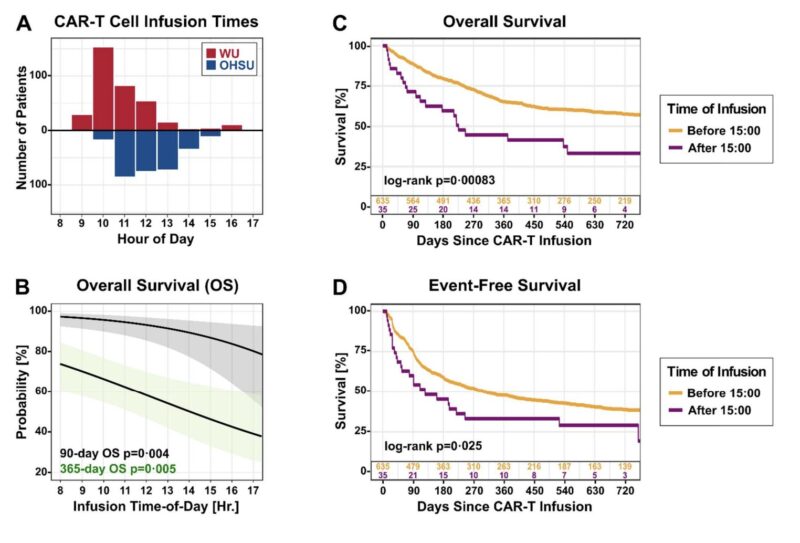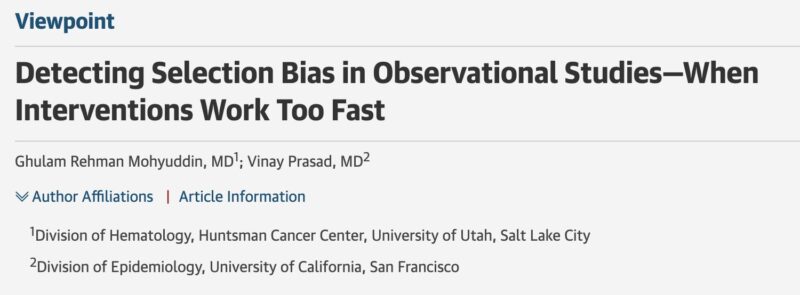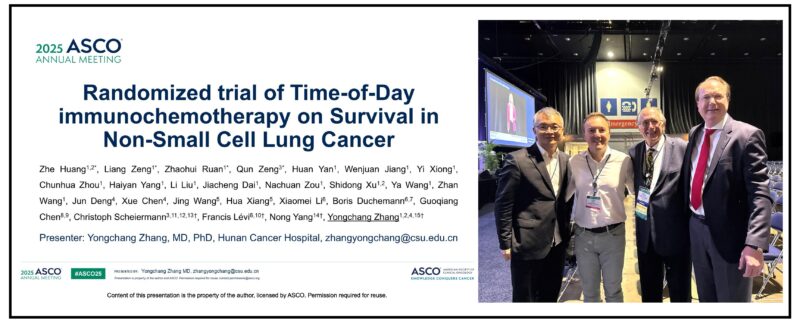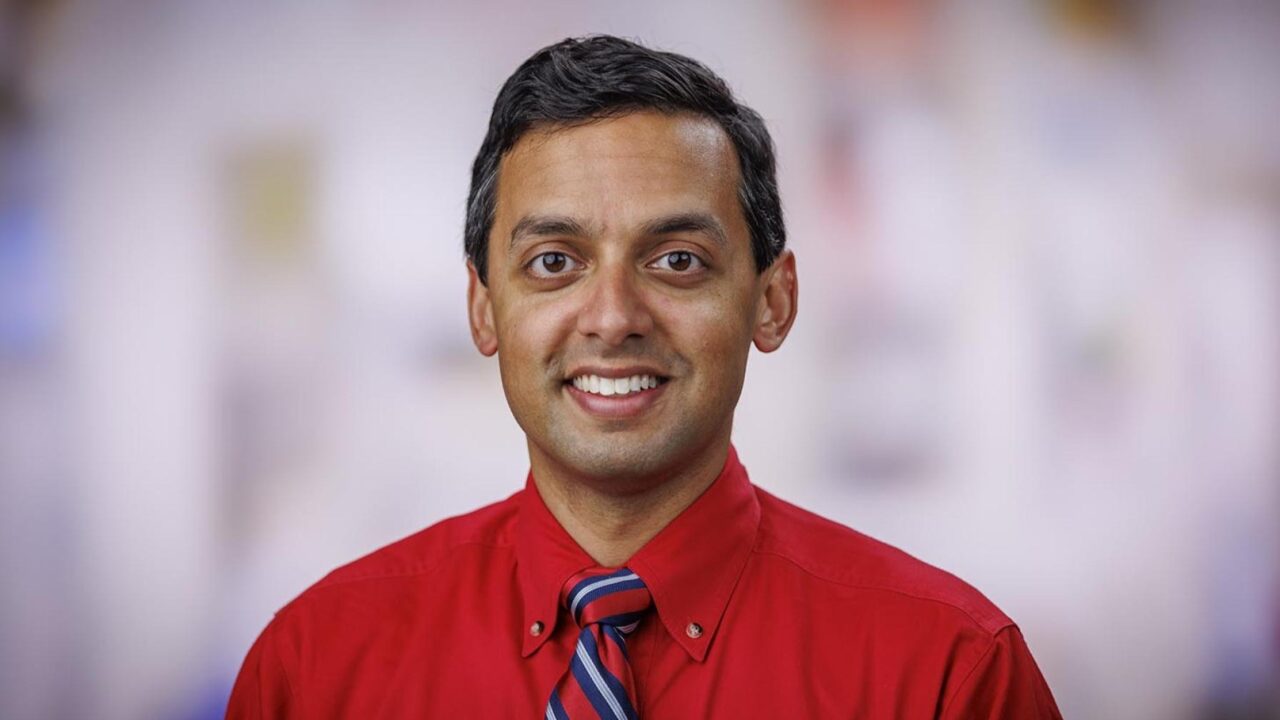Rahul Banerjee, Assistant Professor at the Fred Hutchinson Cancer Center and at the University of Washington, shared a post on X:
“My first time tweeting preprint since March 2020…
Analysis of more than 600 CAR-T recipients from two US time zones. Earlier infusions (before 3 pm) seem to be better!
Still needs peer review. I don’t see a breakdown of specific CAR products by ≤2:59p vs ≥3:00p p.m., for instance.

Let’s say this is true and is verified by RCTs both for CAR-T therapies and for checkpoint inhibitors.
Possible mechanisms abound, but there are certainly diurnal/nocturnal variations in T-cell function and cytokine patterns.
Credit to Nikhil Vasudeva for finding this preprint!”
Timothée Olivier, Medical Oncologist and Attending Physician at the Oncology Division of Geneva University Hospital in Switzerland, shared this post, adding:
“Such curves (separating dramatically so early) likely indicate selection bias: patients who come for morning CAR-T may simply be in better conditions…
A classic pitfall well described by Manni Mohyuddin and Vinay Prasad in this JAMA IM paper:
Title: Detecting Selection Bias in Observational Studies—When Interventions Work Too Fast
Authors: Ghulam Rehman Mohyuddin and Vinay Prasad
You can read the Full Article on JAMA Internal Medicine.

In the famous Chinese RCT, recently presented at ASCO25, the curves are much more plausible.
Needs replication, of course, see my take on this.”

More posts featuring Rahul Banerjee and Timothée Olivier.


